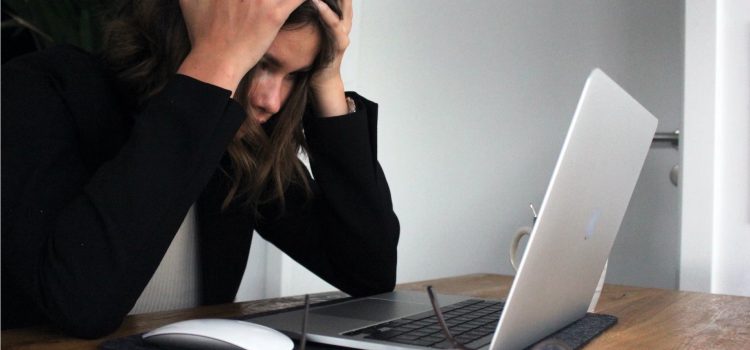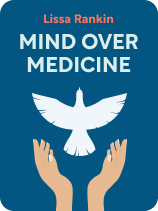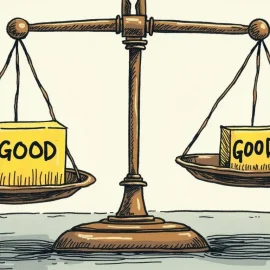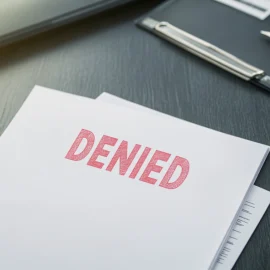

This article is an excerpt from the Shortform book guide to "Mind Over Medicine" by Lissa Rankin. Shortform has the world's best summaries and analyses of books you should be reading.
Like this article? Sign up for a free trial here.
How does overworking affect your health? Can you really die from working too much?
Owerwoking and burnout are very common in today’s fast-paced society. It may be good for the economy, but it can wreak serious havoc on one’s health and even kill.
Here’s a look at the health effects of overworking.
Work Stress Is Toxic
You probably know intuitively that overworking isn’t good for you, but did you know your job can be so impactful on your mind that it can either heal you or kill you? Rankin explains that in Japan, it’s estimated that roughly 10,000 people die from overwork each year. They call this karoshi, which translates to “death by overwork.” It’s so common that Japan offers workers compensation benefits to families who survive their worked-to-death loved ones. Karoshi typically manifests as spontaneous cardiac failure. Rankin argues that even though the US doesn’t have a word for this phenomenon, US citizens suffer from the health effects of overworking too. One study she cites found that people who didn’t take annual vacations were 21% more likely to die of any cause. Further, their cancer risk increased by 32%.
Rankin notes that even when we clock out of work, the world of technology keeps us connected. Emails, texts, and calls travel right to your pocket and wait for you on your laptop at home. This makes it difficult to get away from work stress and relax.
| Make the Most of Your Vacations Even though we’re suffering from overwork in the modern age, we always count on vacation to reduce stress, right? One study that surveyed 1,500 people before and after their vacations found that most of the participants didn’t feel any less stressed after their vacations ended and they actually had less energy when they returned to work. The common causes of stressful vacations are travel-related complications such as unfamiliarity with the area you’re visiting, sorting out unplanned details while on vacation, and feeling unsafe. On the other hand, vacations that are well planned can reduce your stress and help you feel rejuvenated when returning to work. To avoid a Clark Griswold-esque vacation, here are some tips to dial in your travel details and optimize your time away from work: Seek help from a travel agent. A travel agent can help you sort out the logistical issues that are responsible for stressful vacations so you can focus on relaxing. Make your plan at least one month in advance. Another study found that 90% of people that planned a good trip had their plans sorted out a month beforehand. 27% of stressful trips were still being sorted out at the last minute or during the trip. Meet with a local expert. Most positive vacations recorded in the same study were guided by a local host or a knowledgeable friend that lived in the area. |
When Work Helps You Relax
In some cases, work can help you relax rather than stress out, and when this happens, it can improve your health and even save your life. Rankin shares the story of a man plagued with a terminal heart problem who decided to follow his dream of spreading music to the world. The man was suffering so much from the side effects of over a dozen medications that he decided to opt out of his treatments and live out his final days doing something he loved—donating harmonicas to children and teaching them music lessons. Although he wasn’t expected to live more than a year off of his medication, his passion has sustained him for over 13 years. In the next section, we’ll share tips on how to follow your passion or mitigate the stress you experience at your current job in order to relax and heal.
(Shortform note: Research shows that, on average, the least stressful jobs are in forestry and agriculture. Not only do lumberjacks and farmers feel the least stressed, they also report feeling the most happiness and meaning while working. Researchers conclude that this is because they spend their work days in nature doing physical activity—two things known to ease stress and promote happiness. Their work gives them a sense of meaning because it has a positive impact on other people and the natural world. Granted, these careers aren’t all sunshine and rainbows (although you would be enjoying more of these things too)—they lead to more self-reported physical pain than any other career.)

———End of Preview———
Like what you just read? Read the rest of the world's best book summary and analysis of Lissa Rankin's "Mind Over Medicine" at Shortform.
Here's what you'll find in our full Mind Over Medicine summary:
- How a healthy mind can heal physical ailments
- How our beliefs, our relationships, and our jobs affect our health
- How to improve the most important parts of your life






